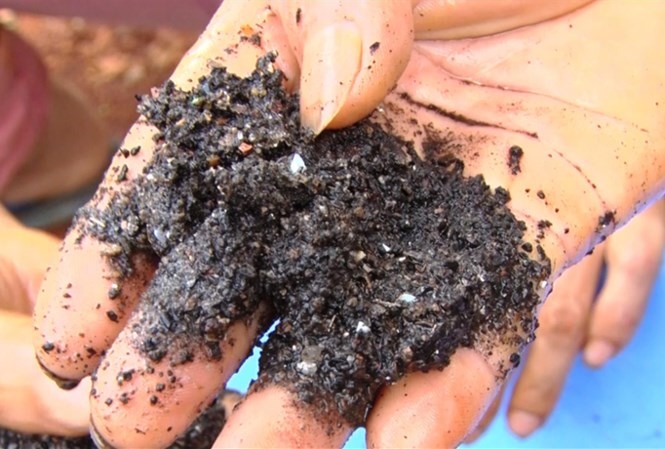 Society
Society

Clam shells and glass pieces were found in 34 tonnes of compost sold to farmers in Đắk R’Lấp District, Đắk Nông Province.
 |
| Compost containing clam shells and small glass pieces. — Photo tienphong.vn |
ĐẮK NÔNG — Clam shells and glass pieces were found in 34 tonnes of compost sold to farmers in Đắk R’Lấp District, Đắk Nông Province.
The information was revealed by the Inspectorate of Đắk Nông Province’s Department of Agriculture and Rural Development.
The 34 tonnes of compost, reported to contain clam shells and glass pieces, were tested by the provincial Department of Agriculture and Rural Development twice.
The department initially concluded the compost’s ingredients do not meet quality standards as registered on the product’s packaging.
However, the second test revealed that the products met the standard. The department then concluded that the compost, coded BM001 manufactured by Vietstar, is qualified in terms of ingredients stated on the packaging.
“The compost was produced from unclassified domestic garbage of HCM City. The impurities cannot be totally eliminated in spite of several processes such as classifying, crushing and selecting,” the department said.
In June 2017, farmer Nguyễn Thế Vinh bought 20 packages of compost branded BM001, with each package containing 50kg, manufactured by Vietstar Joint Stock Company, based in HCM City, and distributed by Nam Long Company, based in Vĩnh Long City.
After using the compost to fertilise 800 pepper trees, Vinh found clam shells, broken glass pieces and other abnormally large impurities in the compost content.
The compost was also sold to two other local farmers.
Vietstar blamed the clam shells and glass pieces on technical failures due to holes in the impurity filter nets.
The three farmers who bought the compost have been compensated 50 per cent of the product value.
The department asked Vietstar to carefully inspect its manufacturing process and technology to eliminate most impurities in the compost before selling in the market to avoid a similar incident.
A leading official of the department said there is no regulation on how to fine companies manufacturing compost containing impurities, therefore no penalty was imposed on Vietstar.
According to the investigation, plants fertilised with this compost grow normally. There is no evidence to conclude the impact of compost on the trees. — VNS




